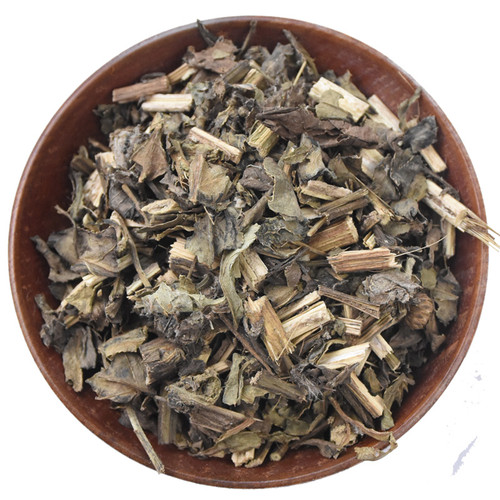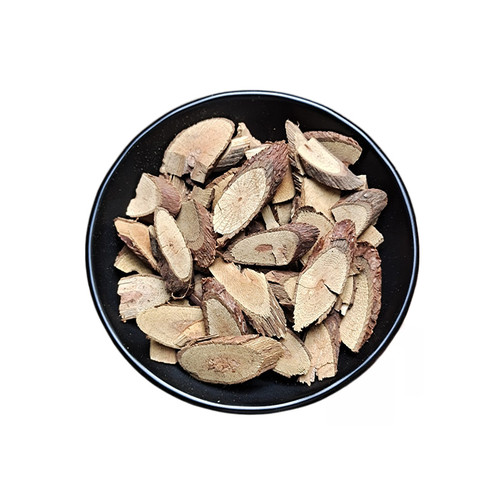Product Overview
Parts used: Dried aerial parts and roots
TCM category: Herbs that stop bleeding
TCM nature: Cool
TCM taste(s): Bitter Sweet
Meridian affinity: Heart Liver
Scientific name: Cirsium japonicum
Use of japanese thistle (Da Ji) in TCM
Please note that you should never self-prescribe TCM ingredients. A TCM ingredient is almost never eaten on its own but as part of a formula containing several ingredients that act together. Please consult a professional TCM practitionner, they will be best able to guide you.
Preparation: Remove impurities, wash, soak in water, cut and dry.
Dosage: 9-15 grams
Main actions according to TCM*: Cools the blood to stop bleeding, removes blood stasis, and disperses swelling
Primary conditions or symptoms for which japanese thistle may be prescribed by TCM doctors*: Nosebleed Hematemesis Hematuria Hematochezia Abnormal uterine bleeding Carbuncles Sores Traumatic bleeding
Common TCM formulas in which japanese thistle are used*:
For Hemorrhage due to fire combine japanese thistle with field thistles (Xiao Ji).
For hypertension combine japanese thistle with field thistles (Xiao Ji) and plantain seeds (Che Qian Zi).
Key TCM concepts behind japanese thistle (Da Ji)'s properties
In Traditional Chinese Medicine (TCM), japanese thistle are plants that belong to the 'Herbs that stop bleeding' category. Like the name indicates these herbs tend to have hemostatic properties, meaning that they help stop various types of hemorrhages and echymosis. Unlike other herbs they often tend to be used externally.
Furthermore japanese thistle are plants that are Cool in nature. This means that japanese thistle tend to help people who have too much "heat" in their body, although with less effect than a plant that would be Cold in nature. Balance between Yin and Yang is a key health concept in TCM. Those who have too much heat in their body are said to either have a Yang excess (because Yang is Hot in nature) or a Yin deficiency (Yin is Cold in Nature). Depending on your condition japanese thistle can help restore a harmonious balance between Yin and Yang.
Japanese thistle also taste Bitter and Sweet. The so-called "five elements" theory in Chinese Medicine states that the taste of TCM ingredients is a key determinant of their action in the body. Bitter ingredients like japanese thistle tend to have a cleansing action on the body by clearing heat, drying dampness and promoting elimination via urination or bowel movements. On the other hand Sweet ingredients tend to slow down acute reactions and detoxify the body. They also have a tonic effect because they replenish Qi and Blood.
The tastes of ingredients in TCM also determine what organs and meridians they target. As such japanese thistle are thought to target the Heart and the Liver. In addition to regulating blood flow, in TCM the Heart is believed to be the store of the "spirit" which basically refers to someone's vitality. The Liver on the other hand is often referred as the body's "general" because it is in charge of regulating the movements of Qi and body fluids. It also takes a leading role in balancing our emotions.







